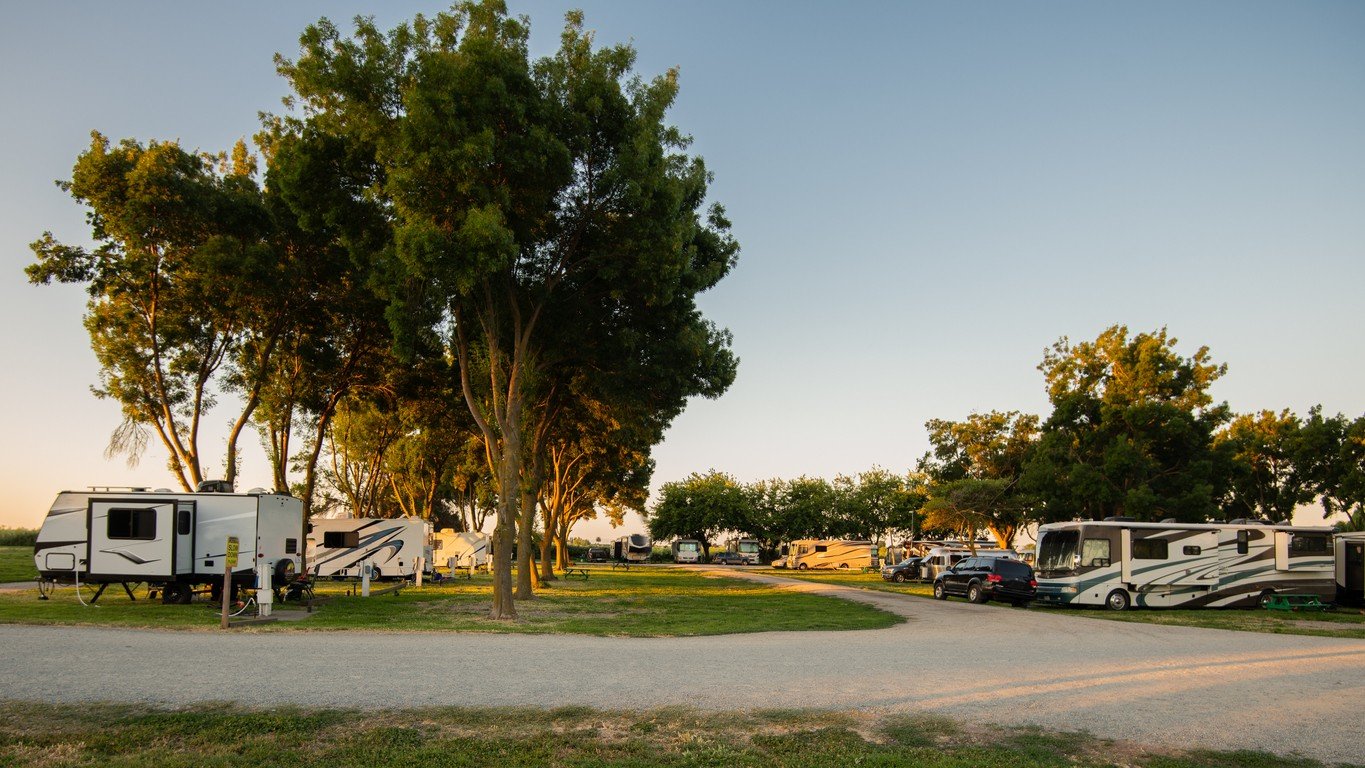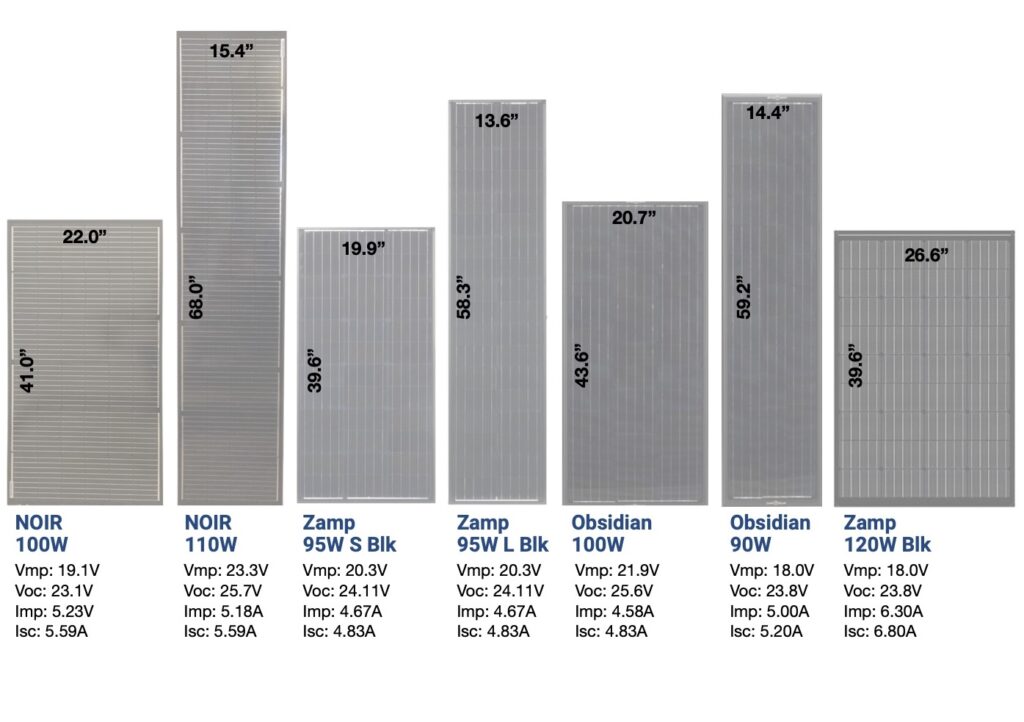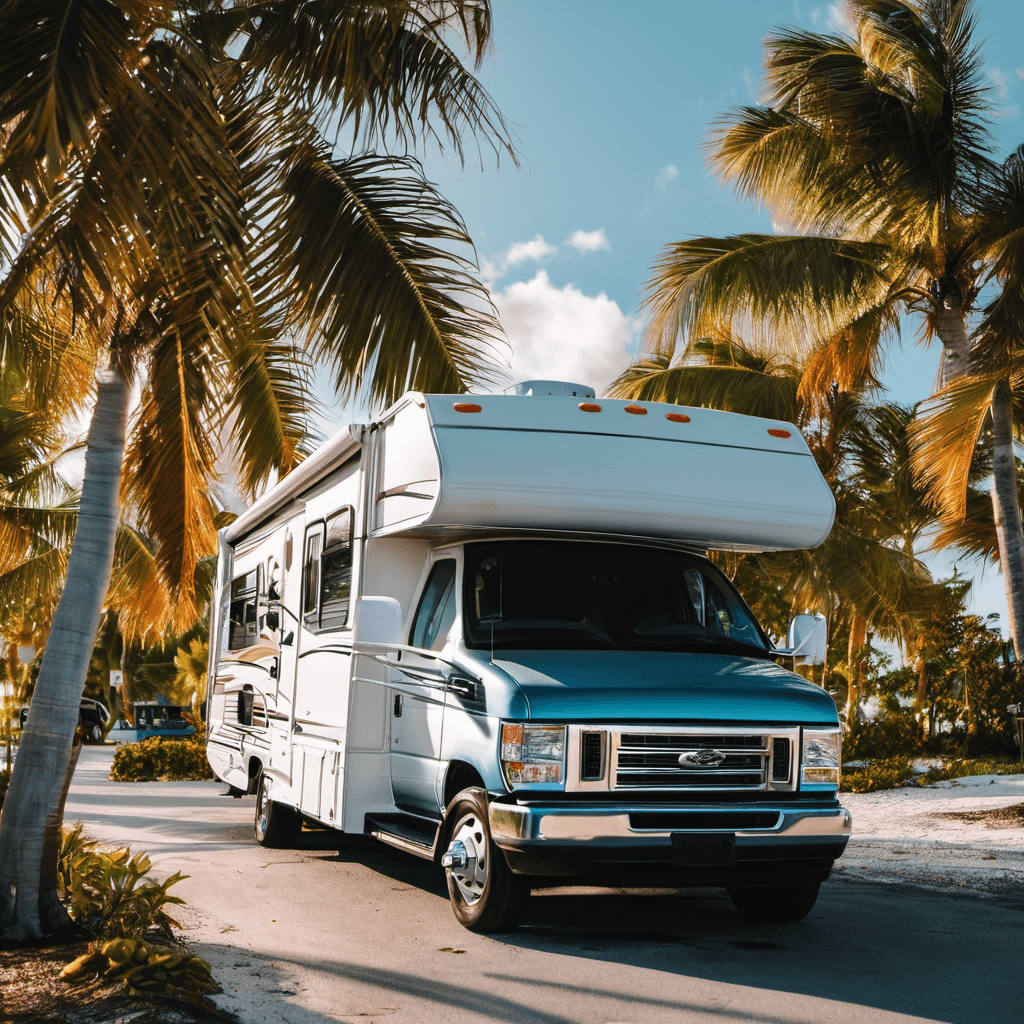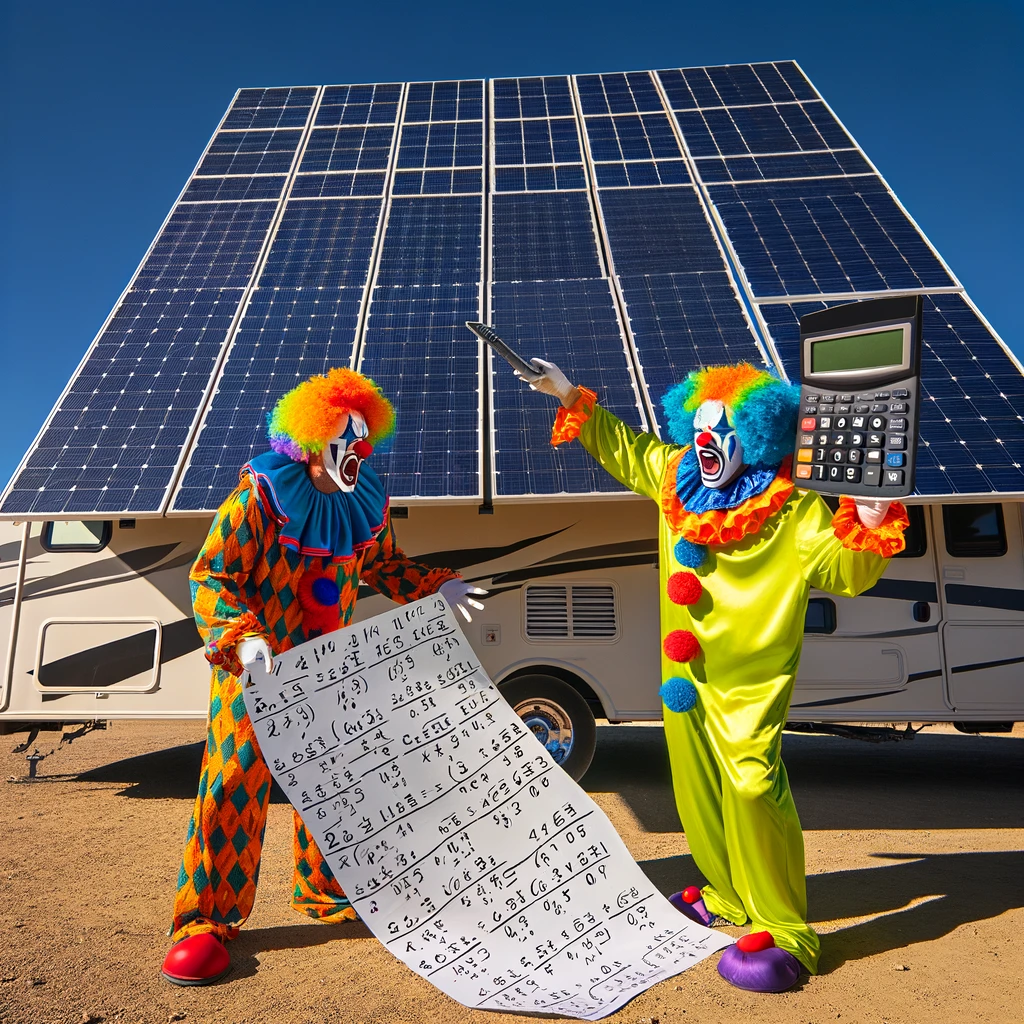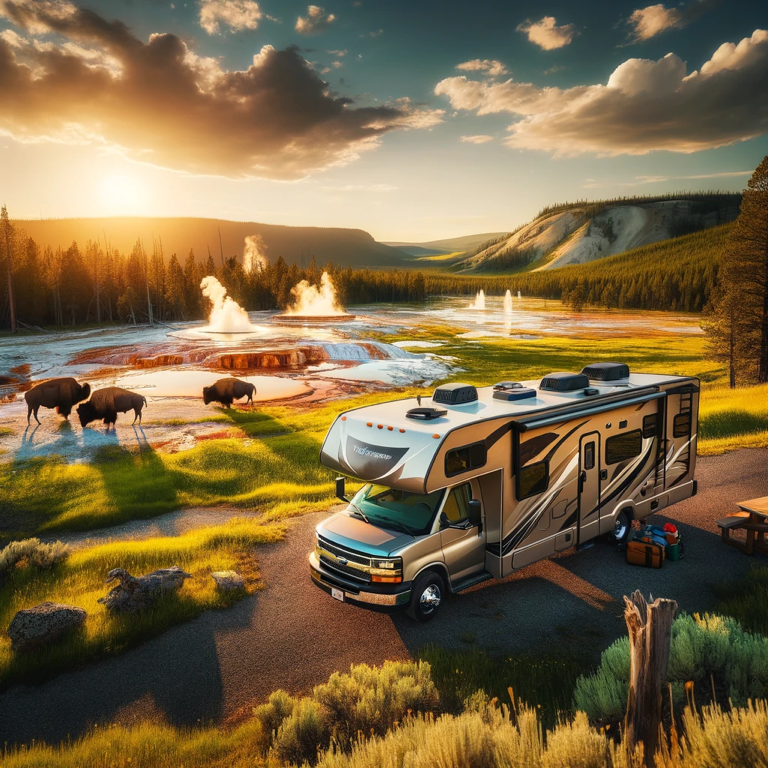If you’re new to RVing, you may be wondering what life is like in RV parks and campgrounds. It can be a ton of fun hanging out in awesome destinations with a community of like-minded travelers. But it can also be a major hassle – if people don’t follow the rules. So, let’s look at some of the most common ones out there so you’ll be prepared for a good time for yourself and your fellow campers.
1. Quiet Hours
This is one you’ll find in just about every RV park, campground, or other official site. A recreational vehicle isn’t the most soundproof of dwellings, which means it can be pretty annoying to hear your neighbors blasting music, running their generators, or even just loudly talking or yelling around their RV site. While we all want to have a good time and enjoy ourselves on our trip, it’s vital to respect other campers as well. Quiet hours are one of the best ways to do this. Usually beginning anywhere from 9 pm to 11 pm (though this will vary from park to park), you’ll need to keep outside noise to a minimum and likely also turn off your generator if it’s currently in use. While you may occasionally chafe at having to dial down the party a bit earlier than you’d like, you’ll also benefit from his quiet time through much better nights of sleep than you would have otherwise!
2. Only Authorized Guests and Pets Allowed
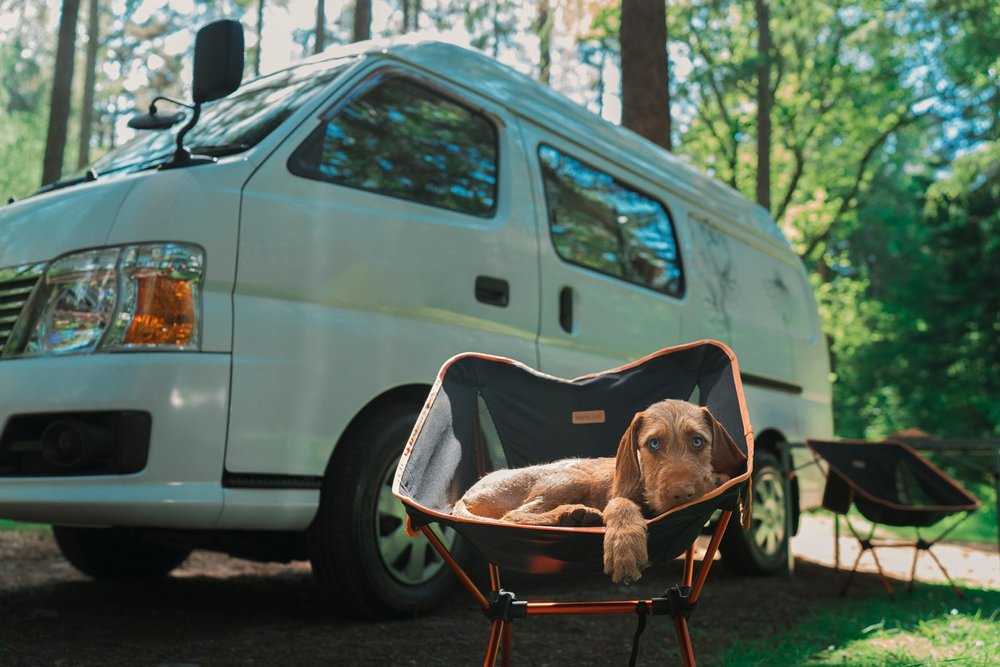
When you book your stay, you’ll likely be asked how many people and pets are coming along. This isn’t because park staff are nosy – there are good reasons to know precisely who will be staying at your campsite. Rates may vary based on the number of people, and pets may incur additional charges (or be required to stay in different parts of the park) as well. The park also has an interest in avoiding overcrowded campsites. That’s why every person staying with you should be a registered guest. You shouldn’t allow overnight guests with prior approval and know the rules about people who may stop by while you’re staying. When it comes to pets, make sure you understand the rules and follow them, especially when it comes to picking up waste and where pets are permitted within the park facilities.
3. No RV Leaks
This is a pretty simple rule – don’t let your rig leak all over your campsite, no matter what is coming out! Leaks range from annoying (freshwater soaking the ground around your site) to disgusting (a faulty sewer hose or sewer connection) to dangerous (gas/diesel or oil), but they’re all problems. Make sure you have any issues addressed before arriving at the campground and seek repairs as soon as possible if problems develop on your trip.
4. Park in the Correct Parking Spot
Anyone who’s been in an RV campground knows how many vehicles are typically around. It’s vital that they all be put in their proper place to prevent traffic jams, a lack of parking for all guests, and other issues. Rules may differ for motorhomes versus a tow vehicle and travel trailer, and those with an extra vehicle may need to pay additional fees or park in a separate location from their campsite.
5. Obey the Speed Limit and Other Park Driving Rules
The RV park is not a racetrack or an interstate – so don’t drive like it’s one! All too often, drivers may treat the speed limit as a suggestion or, even worse, a minimum. If park management has decided 15, 10, or even 5 miles per hour is the safest speed, it’s crucial to respect this. Driving too fast may put you at risk of running off the road if your rig can’t handle turn appropriately, and studies have shown crashes with cars and especially pedestrians are significantly worse at higher speeds. Other crucial rules include fully stopping at stop signs or following arrows that may restrict traffic flow in one direction. Protect yourself, your rig, and others by driving safely and slowly when navigating the campground.
6. Respect Fellow Campers and Their Space
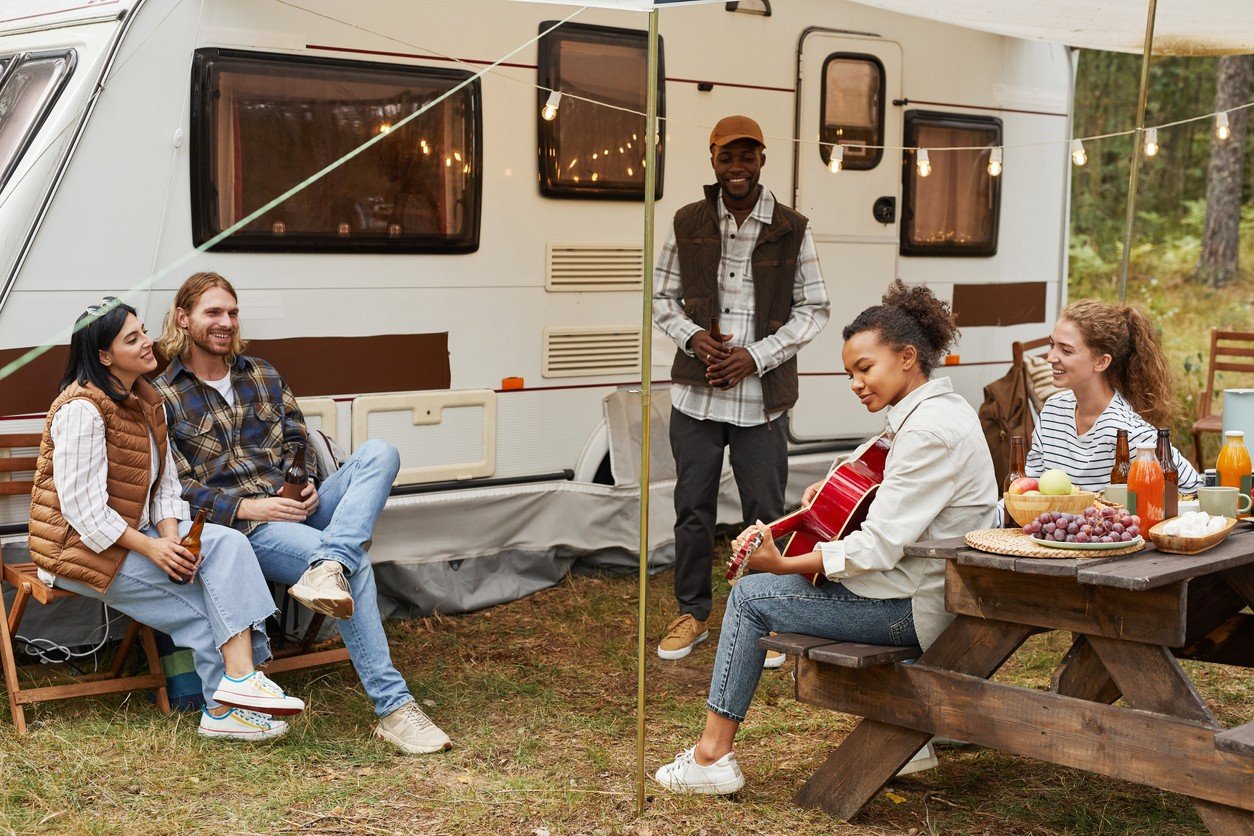
RV parks can be enormous, and no one like a long walk to the bathrooms, campground office, or other amenities. Still, it’s vital to avoid cutting through the campsites of other RVers to shave a few steps off your walk. While some see these campgrounds as just a collection of RVs parked together, you should respect the space of your fellow campers like you would your neighbors at home. Would you cut through a stranger’s yard to get somewhere quicker? Most of us wouldn’t, with the reasons why being fairly obvious. For one, campers may have valuable items like grills, chairs, or other outdoor equipment sitting out and don’t want to see a person they don’t know wandering around it.
More importantly, we’re all entitled to privacy and respect, even when camping in an RV park. Give people their space, and in most cases, you’ll receive similar treatment. You should also avoid common frustrations like the use of illegal drugs, excessive consumption of alcoholic beverages, and especially aggressive behavior, either among your party or with other guests.
7. Keep Your Site Tidy
This rule goes hand in hand with respecting your neighbor’s space because one big way to annoy nearby RVers is a dirty, unkempt campsite. This can become a problem in various ways. Some may leave cups, plates, or other food or drink trash sitting around or tossed out improperly. Others may have too much junk stacked up outside their rig, or worse, be working on a car or other vehicle with parts scattered about. Your RV neighbors pay good money for their site and shouldn’t have to look at a landfill or junkyard. A bit of tidying up and awareness of this issue goes a long way.
8. The 10-Year Rule, and Other Park-Specific Restrictions
Unfortunately for owners of older RVs or trailers, you may not be welcome in every park. Some owners choose to institute what’s known as the “10-Year Rule,” which bars anyone with a rig older than a decade from staying. The idea is to keep the campground looking nice by avoiding old, poorly maintained junkers taking up space next to your new, shiny motorhome. Not all RV parks have this sort of rule, and even those that do may grant exceptions if you reach out individually. Still, it’s crucial to get prior approval from park management and not just show up and try to talk your way in. If you own a 10+-year-old camper, it’s vital to be aware of how your options for places to stay may be a bit restricted compared to others.
9. Know the Rules About Your Reservation
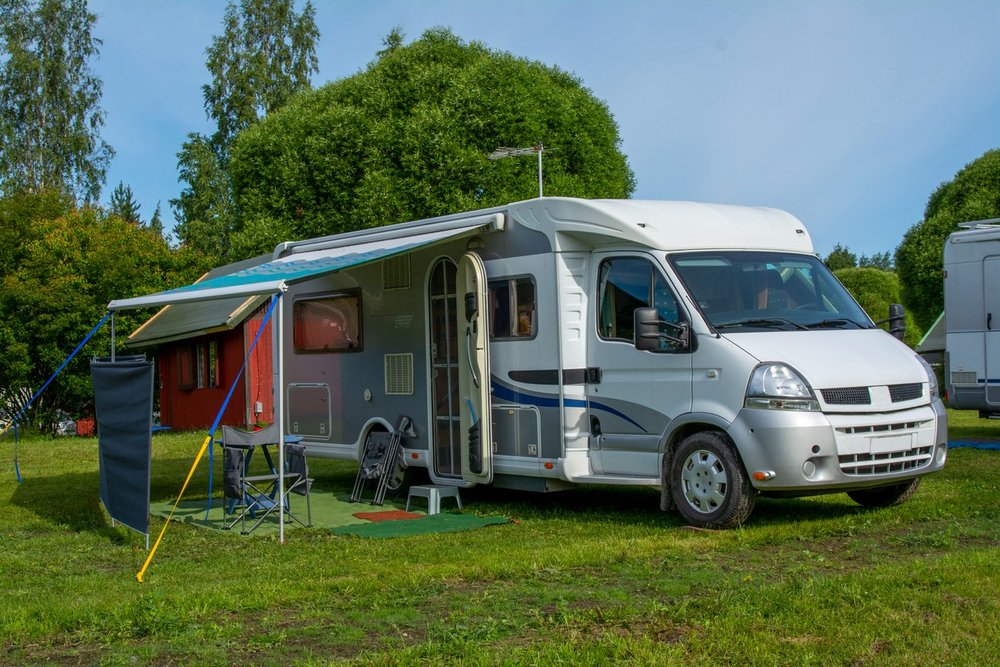
All too many RVers don’t read the fine print when it comes to their reservation at a park. They may know their arrival date but may show up long before their check-in time. Alternatively, they might arrive too late and find park management has gone home for the evening! Reaching out to give prior notice of your plans can avoid this hassle if you plan to arrive outside of the usual check-in hours.
You should also be aware if the campground charges a cancellation fee should your plans fall through last minute. Will you be able to get any money back if you make an early departure? What’s the cost and process of adding a night or two if you decide to stay longer? Are there significant discounts for a weekly or monthly reservation? Get answers to these questions ahead of time, so you’re not caught off guard.
10. Respect Your Site
You’re a guest in your new RV park home, so treat it well for the sake of future visitors. Don’t damage any picnic tables or other equipment, don’t burn anything inappropriate in a fire pit, and take care not to harm any trees or landscaping. Treat the area like it’s your home. If everyone did this, park facilities would see far less damage.
Stay Worry-Free with Boondocking
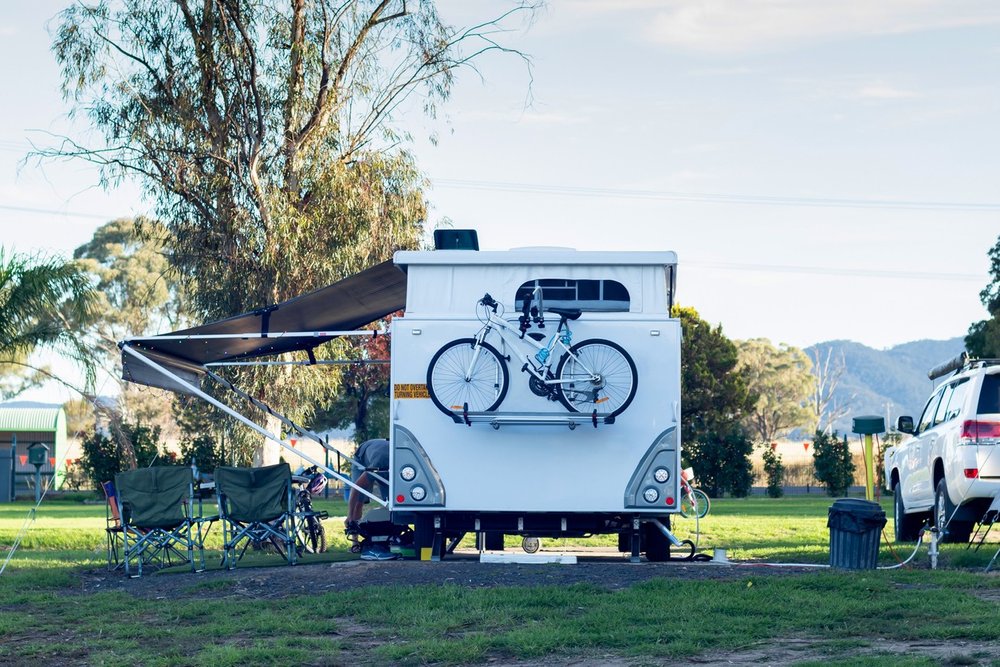
Is your head spinning from all of the different rules and regulations you’ll need to follow staying in the average RV park? Do you chafe at following someone else’s guidelines for quiet hours, additional vehicles, maximum occupancy, and more? Boondocking may be the best choice for you.
For those unfamiliar, boondocking (also known as dry camping) refers to camping sites that don’t have many of the traditional amenities of an RV park, like utility hookups, bathrooms, or trash and sewage disposal. These sites can be found everywhere, from remote corners of public lands to humble fields or other unused spaces closer to cities and towns. Naturally, there will always be some basic rules, primarily concerning whether and how long you can camp at a given spot, along with local laws and regulations. However, you’ll be able to avoid just about all of the most restrictive RV park rules, not to mention the costs and hassle of booking!
One significant question may remain for would-be boondockers— how to get the electricity they need. After all, some consider a recreational vehicle without adequate power to be not much better than tent camping. But fear not. There’s an easy-to-use solution—solar power. AM Solar offers a wide variety of solar panels, components, and complete solar kits. By harnessing the power of the sun, solar RVers can forget about traditional power hookups and generate their electricity in a renewable way. Solar can work just about anywhere your rig will take you!
Want to learn more about boondocking and the many ways AM Solar products can make your trip more comfortable? Contact us today and check out some of our top boondocking tips here!
